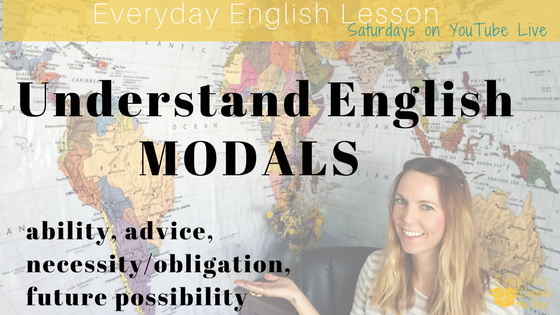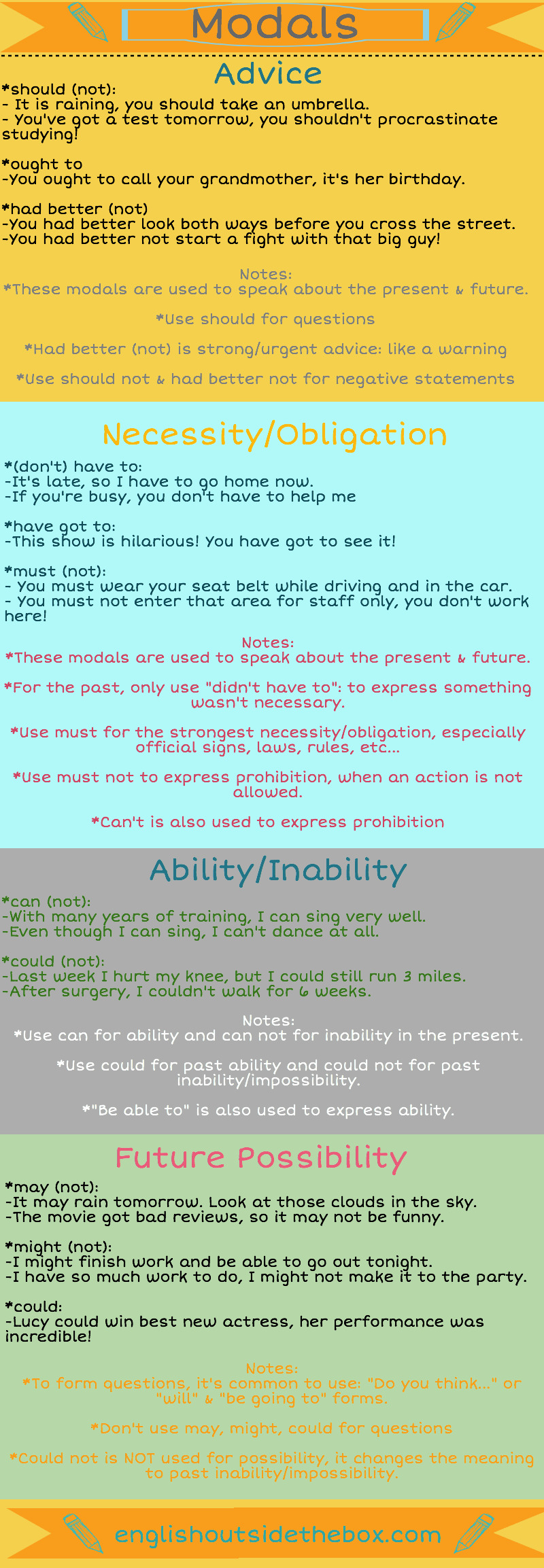
Understand English Modals
If you want to learn English you must be studying every day. To increase fluency, you have to surround yourself in as much English as possible. You should have a variety of resources and activities to review. You can read blogs and English lessons, watch YouTube videos, and listen to podcasts. Hey…you might even try mine on Friday, English Across the Pond, right?
As you may have realized, the first 4 sentences of this lesson contained modals. Specifically, they contained examples of the types of modals we’re reviewing today, and what we reviewed in our live lesson on Saturday. We had a lot of great questions, during our live training which gives you an extra bonus even when watching the replay! With those questions, we were able to go into some more details, review more examples, and quickly talk about some other types of modals. If you want to understand English modals, then get out a paper and pen and review the replay of the “Everyday English” lesson. I ask some questions for you, my English lover and learner, so you can interact, even with the recording!
Let’s do it!
Remember you can join me every Saturday on YouTube for “Everyday English” lessons, live training videos that will help you improve your everyday English skills and fluency!
Understand English Modals
Modals are auxiliary verbs, also known as “helping” verbs. These auxiliary verbs help change the meaning of main verbs to express a variety of things, such as: ability, possibility, obligation, necessity, etc.. Modals are often commonly used in condition statements, when asking for permission, and to make things more polite.
Trying to learn all of the modals would be overwhelming, which is why we’re focusing on just 4 types today:
- advice
- necessity/obligation
- ability/inability
- future possibility
In the lesson, we reviewed this infographic with information and sentence examples.

The live video training also gave some other examples provided by the learners in the chat, but can you create some of your own?
Practice Makes Perfect
Try and apply this grammar to your life by creating sentences about situations you’ll use these modals. In case you get stuck, you can respond to the following prompts:
- Write about the last piece of advice you received and the last piece of advice you gave.
- Write about rules in your city that are common, and laws you found strange while traveling abroad. In your job, are there certain responsibilities you have to do?
- Talk about a few things that you could do in the past, but aren’t able to do anymore. Be specific!
- Imagine and share some things you may do in the next week…. in the next month…and in the next year. Use a variety of modals for future possibility.
Feel free to share your answers in the comments below, in our Facebook group, or with your conversation partner!

Hello my best tutor ,Jennifer
Your lessons associated with golden advice are very interesting , thank you so much for all your efforts , i appreciate your task ..
Have a good time.
All the best
Best Regards